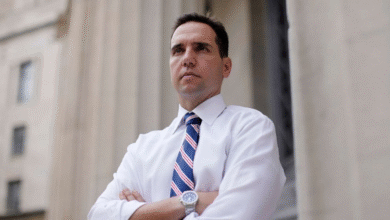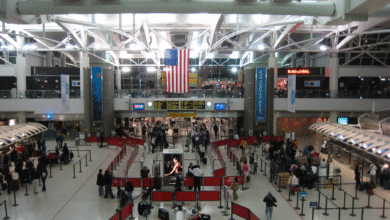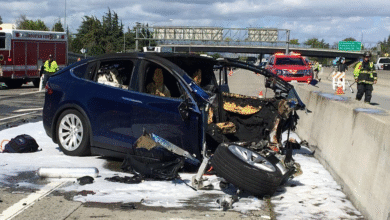Rare-Earth Magnets: U.S. Firms Face Import Surge

Rare-earth magnets are essential components in modern technology, crucial for applications ranging from electric vehicles to high-performance electronics. These powerful magnets, primarily made from rare earth elements like neodymium, enable significant advancements across various industries by enhancing efficiency and performance. However, the global supply chain for rare-earth magnets is increasingly dominated by China, which holds about 90% of the market share for both production and refining. This tight grip on the rare-earth element market has caused U.S. manufacturers to scramble for security in their supply chains, especially following a staggering 660% increase in imports from China in June. As American firms seek stable access to these critical materials, the interplay of trade agreements and technological demands continues to evolve, influencing everything from manufacturing strategies to economic policies.
Rare-earth permanent magnets, often referred to as high-performance magnets, play a pivotal role in various industries, powering everything from renewable energy solutions to cutting-edge consumer electronics. These advanced magnets originate from rare earth elements, specifically neodymium, which contribute significantly to their exceptional magnetic strength and stability. As the demand for such components escalates, notably due to an uptick in electric vehicle and renewable energy projects, the supply landscape is heavily influenced by China’s dominance in exports. In contrast, the United States faces mounting challenges in establishing a resilient domestic manufacturing base, crucial for its technological independence. By exploring new avenues such as recycling initiatives, U.S. companies aim to create a sustainable supply chain for these indispensable materials.
Understanding Rare-Earth Magnets
Rare-earth magnets are powerful magnets made from alloys of rare-earth elements, primarily neodymium, iron, and boron. Due to their remarkable strength and lightweight properties, they are extensively utilized in various high-tech applications such as electric motors, generators, and magnetic resonance imaging (MRI) machines. The demand for these critical components is driven not only by the automotive and electronics industries but also by the growing renewable energy sector that relies on efficient magnetic technology.
With an estimated 90% of the world’s rare-earth magnet supply controlled by Chinese manufacturers, the U.S. and other countries have become increasingly reliant on these imports. This dependence has raised concerns about supply chain vulnerabilities, especially as geopolitical tensions rise. As American firms scramble to secure their supply of rare-earth magnets, understanding the dynamics of this market is essential for adapting to the changing landscape.
The Surge in Chinese Exports of Rare-Earth Magnets
In June 2025, reports indicated a staggering 660% increase in the U.S. imports of rare-earth permanent magnets from China, underscoring a significant shift in the trade dynamics post a Sino-U.S. trade agreement. This surge can be attributed to new export license approvals from Chinese producers, as well as the urgent need from U.S. manufacturers affected by previous restrictions. The spike in trade illustrates how essential these magnets have become for maintaining operational capabilities in American industries.
This remarkable increase not only hints at a temporary relief for U.S. companies facing shortages but also reflects broader supply chain challenges. Despite the quick restoration of imports, the U.S. must still consider its long-term strategy to cultivate domestic production capabilities for rare-earth elements through mining and refining processes. This could help buffer against future reliance on imported magnets, thereby stabilizing the supply chain.
Impact on U.S. Manufacturing and Technology
The reliance on Chinese rare-earth magnets has profound implications for U.S. manufacturing sectors, particularly in automotive and electronics. As companies such as Apple and various automotive suppliers rely heavily on these components, ongoing supply chain disruptions could lead to significant production halts. The technology sector, which thrives on innovation, faces similar challenges as it competes for access to these essential materials.
The U.S. government’s efforts to support American manufacturing through initiatives such as recycling are steps in the right direction. Collaborations between tech giants and mining companies, like the $500 million deal between Apple and MP Materials, aim to create sustainable sources for rare-earth magnets. However, experts stress that establishing a robust domestic supply chain capable of rivaling China’s efficiency will require substantial investment and time.
Navigating the Rare-Earth Magnet Supply Chain Crisis
The recent export restrictions imposed by China have forced global companies to rethink their rare-earth magnet supply chains, prompting many to explore alternatives domestically or in allied nations. A reexamination of the supply chain highlights the need for diversification to avoid potential disruptions caused by geopolitical tensions. However, the intricate processes involved in refining and separating rare-earth elements present significant hurdles for countries attempting to establish self-sufficient supply chains.
Experts warn that while the U.S. is making strides towards domestic solutions, the pace of establishing alternative supply chains capable of competing with China’s operational efficiencies may take years. For manufacturers and technology developers alike, remaining agile will be critical as they navigate this complex environment filled with uncertainty due to shifting trade policies and market dynamics.
The Role of Recycling in Securing Supply Chains
As U.S. firms seek to mitigate reliance on China for rare-earth magnets, recycling emerges as a viable strategy to secure supply chains. Efforts such as the collaboration between Apple and MP Materials highlight the increasing importance of recycling programs not only for sustainability but also for reinforcing domestic supply. By creating a robust recycling infrastructure, companies can reduce their dependence on new rare-earth material while promoting environmental responsibility.
However, the success of recycling initiatives ultimately depends on advancements in technology that improve efficiency and recovery rates of magnets from discarded electronics and other products. The ongoing investments in recycling capabilities reflect a strategic pivot towards a more sustainable and secure supply chain for rare-earth elements, essential for modern technology. This dual focus on recycling and establishing domestic production is vital in mitigating future supply risks.
China’s Dominance in Rare-Earth Magnet Production
China’s grip over the rare-earth magnet market is a defining feature of the global trade landscape, with their production accounting for approximately 90% of the total supply. This dominance stems from decades of investment and development in rare-earth refining processes, giving them a clear competitive edge over other nations. As the U.S. and other countries grapple with their dependency on Chinese exports, questions about the stability and resilience of the rare-earth supply chain have come to the forefront.
Concerns have intensified as China has exhibited its ability to control the flow of these critical materials, often using trade measures as leverage in geopolitical conflicts. In light of this, U.S. policymakers are increasingly focused on building a resilient supply chain by exploring domestic mining opportunities. The long-term solution to maintaining a competitive edge in technology rests in diminishing this over-reliance on Chinese rare-earth magnets.
Understanding Rare Earth Elements and Their Applications
Rare earth elements (REEs) are a group of 17 chemically similar elements, which include neodymium, praseodymium, and dysprosium, crucial for producing rare-earth magnets. These elements play a vital role in the manufacture of cutting-edge technologies such as smartphones, electric vehicles, and renewable energy turbines. As global competition intensifies for these critical resources, understanding the properties and applications of REEs is essential for industries reliant on advanced magnetic technology.
The unique magnetic properties of these rare earth elements mean that they are pivotal in enhancing the efficiency and performance of various electronic devices. Innovation in their application has unlocked new possibilities in technology, making them indispensable for modern advancements. As the importance of rare earth elements grows, strategic approaches to sourcing, refining, and recycling them will define future technological progress.
Future Trends in Rare-Earth Magnet Production
The landscape for rare-earth magnet production is changing rapidly as technological advancements and shifting global economies reshape the industry. Companies are increasingly investing in research and development to enhance magnet production techniques, with a focus on efficiency and sustainability. Innovations in recycling technology will also be key to ensuring a steady supply of magnets without the environmental downsides associated with mining new materials.
In addition, as U.S. manufacturing seeks to reclaim some of its supply chain dependent on Chinese exports, we may witness a resurgence in domestic mining activities and partnerships aimed at creating a more resilient infrastructure. The next few years are critical for determining how well the U.S. can adapt to these challenges, and whether it can establish a competitive footing in the global market for rare-earth magnets.
Geopolitical Implications of Rare-Earth Element Control
The geopolitical dynamics surrounding rare-earth elements and their applications extend far beyond simple trade agreements. With China holding significant sway in the global market, countries must navigate complex diplomatic relationships to ensure access to these resources. As nations like the U.S. work to secure alternative sourcing pathways, the strategic implications of rare-earth element management will shape future policies and alignments among major economies.
Furthermore, as the transition to clean energy and advanced technologies accelerates, the competition for rare-earth elements is likely to intensify. This scenario poses the risk of escalating tensions as countries vie for dominance in critical tech supplies. Hence, understanding the geopolitical ramifications of rare-earth magnet production and the subsequent trade dynamics is imperative for policymakers aiming to develop strategies that bolster national security while fostering economic growth.
Frequently Asked Questions
What are rare-earth magnets and why are they important?
Rare-earth magnets, primarily composed of neodymium, iron, and boron, are crucial due to their strong magnetic properties. They are essential in advanced technologies such as electric vehicles, wind turbines, and consumer electronics. The reliance on rare-earth magnets has increased significantly, especially from U.S. manufacturers, which underscores their importance in the supply chain.
How do rare-earth elements factor into the production of magnets?
Rare-earth elements, particularly neodymium, are vital in manufacturing high-performance magnets. These elements provide the magnetic strength that makes rare-earth magnets indispensable in a variety of applications. With approximately 90% of rare-earth production concentrated in China, the U.S. is increasingly focused on securing these elements to bolster its manufacturing capabilities.
What has been the impact of China’s export restrictions on rare-earth magnets?
China’s recent export restrictions on rare-earth magnets have led to a significant increase in U.S. imports, which surged over 660% in June alone. These restrictions caused American firms to scramble for supplies as various industries, including automotive and electronics, faced shortages, prompting a reevaluation of supply chain dependencies.
How dependent is the U.S. on China for rare-earth magnet supplies?
The U.S. heavily relies on China for rare-earth magnets, accounting for a substantial portion of its imports. In June, the U.S. imported 353 metric tons of these magnets from China, emphasizing the critical dependence of American manufacturing sectors on Chinese exports for materials necessary in advanced technologies.
Is the U.S. making efforts to establish its own rare-earth magnet supply chain?
Yes, the U.S. is actively exploring ways to bolster its own rare-earth magnet supply chain. This includes enhancing recycling efforts and developing domestic resources. For example, Apple and MP Materials are collaborating on a $500 million recycling facility to secure a sustainable U.S. supply of rare-earth magnets.
What recent developments occurred in the rare-earth magnets trade between China and the U.S.?
Recent trade developments saw a surge in the export of rare-earth magnets from China to the U.S., following a preliminary trade agreement. This increased collaboration aims to ease previous restrictions and enable American companies to obtain vital rare-earth elements needed for manufacturing.
Why is neodymium particularly significant in rare-earth magnets?
Neodymium is significant in rare-earth magnets because it contributes to their unparalleled magnetic strength, making them essential for various applications such as electric motors and generators. The unique properties of neodymium magnets make them a top choice for advanced technology in multiple industries.
What roles do rare-earth magnets play in renewable energy technologies?
Rare-earth magnets play a crucial role in renewable energy technologies by being integral to the functioning of wind turbines and electric vehicles. Their efficiency and strength are critical for components that harness and convert energy, positioning them as a key element in the transition to sustainable energy sources.
How has the rare-earth magnets market changed in recent months?
The rare-earth magnets market has experienced dramatic changes, with a notable increase in exports from China to the U.S. due to decreased restrictions and high demand. This surge indicates a shifting landscape as U.S. companies adapt to securing essential materials amidst the evolving trade dynamics.
What are the challenges in developing a non-China dependent rare-earth magnets supply chain?
Developing a non-China dependent supply chain for rare-earth magnets poses significant challenges due to the complex processes required for refining and separating rare-earth elements. This endeavor will take years of investment and development to achieve independence from China, due to their established dominance and experience in the market.
| Key Point | Details |
|---|---|
| Export Surge | China’s exports of rare-earth magnets increased 660% in June compared to May. |
| U.S. Imports | The U.S. received 353 metric tons of rare-earth magnets from China in June. |
| Market Control | China controls approximately 90% of the global rare-earth market and refining process. |
| Trade Deal Impact | Recent Sino-U.S. trade deal eased controls on Chinese rare-earth exports. |
| Production Challenges | Shortages have affected industries like automotive and robotics due to export license delays. |
| Recycling Initiatives | Increased recycling efforts, including a $500 million deal between Apple and MP Materials. |
Summary
Rare-earth magnets are essential components for advanced technology, and recent trends show a significant increase in U.S. imports due to a surge in China’s exports. The implications of the recent trade dynamics and China’s market dominance highlight both the challenges and opportunities facing the U.S. industry as it seeks to stabilize its supply chains amidst global competition.




